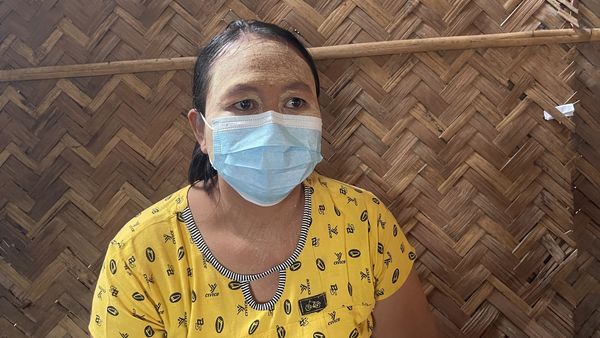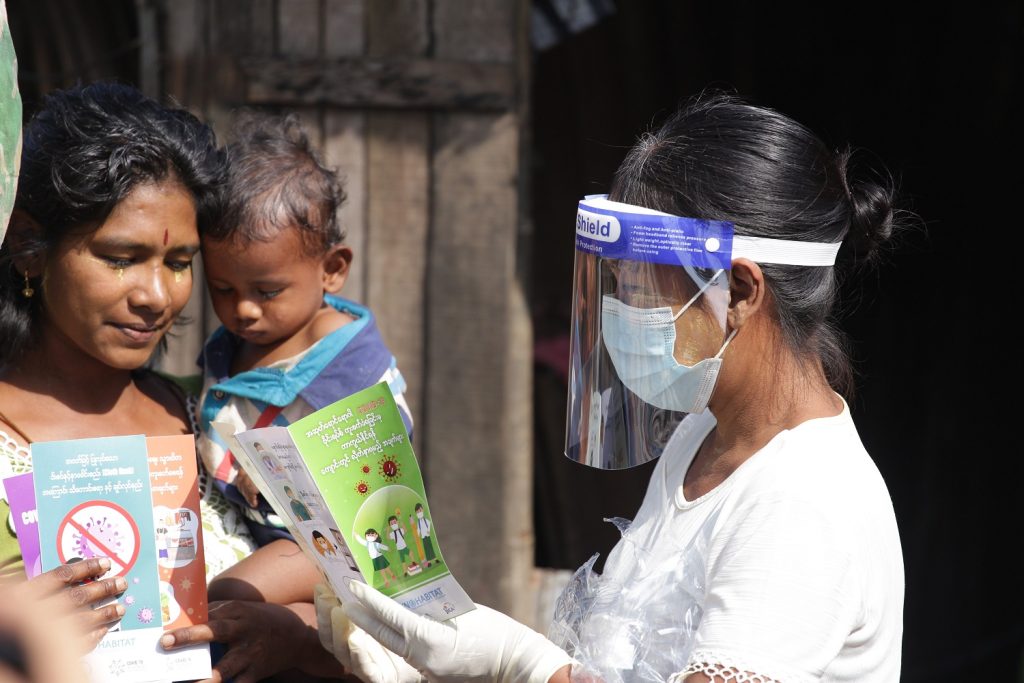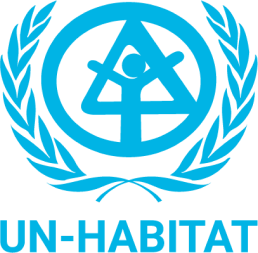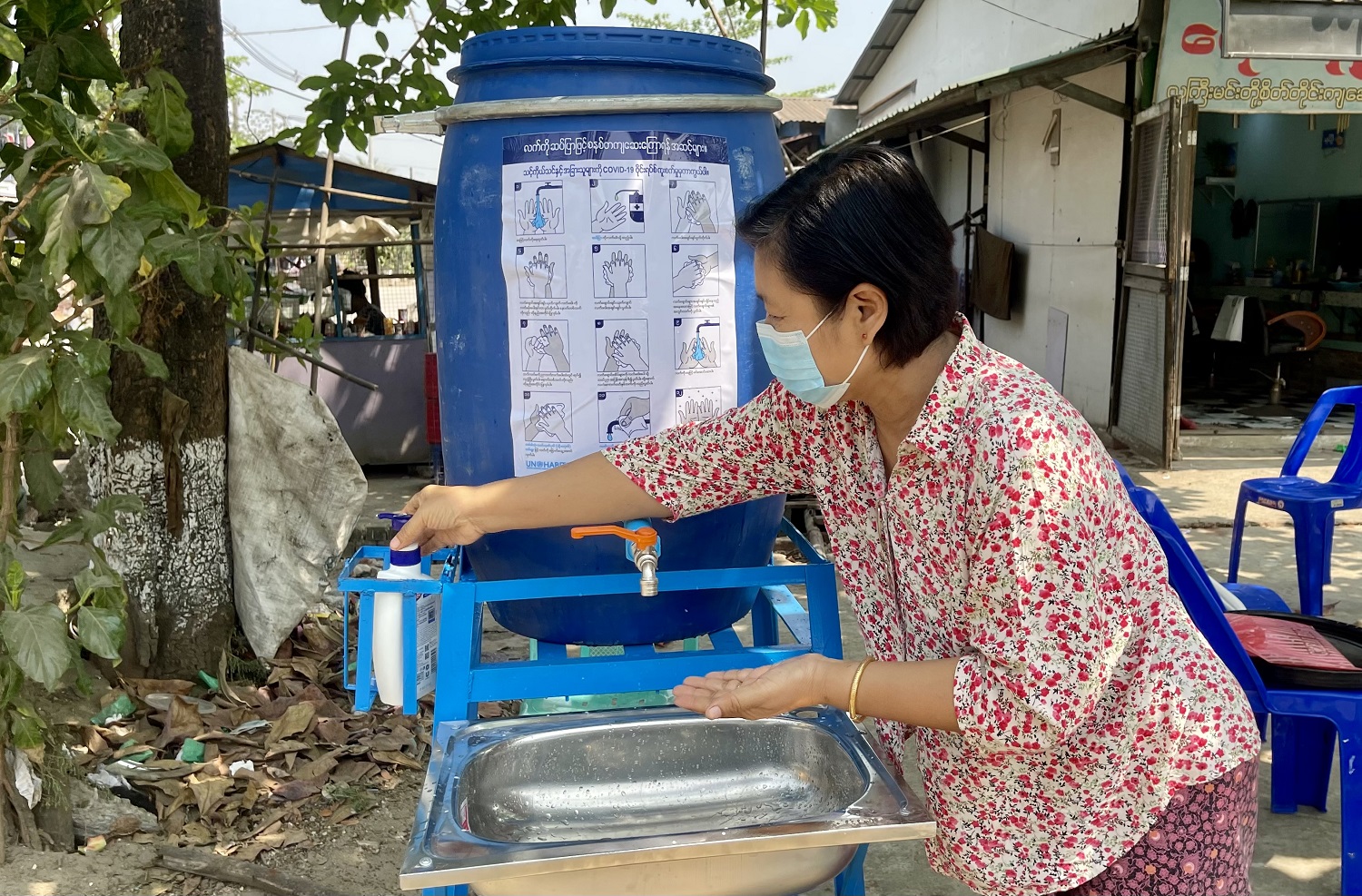Daw Aye Aye (Community Volunteer)
The COVID-19 pandemic has highlighted the importance of WASH (water, sanitation, and hygiene) in disease and virus prevention. However, most COVID-19 recommendations are impractical for informal settlements. Overcrowding, poor housing conditions, and a lack of access to water, sanitation, and waste management facilities make any form of physical or social distancing extremely difficult, and even simple interventions, such as regular hand washing burdensome. Besides, most underprivileged households rely on day-to-day jobs to meet their daily expenses and lack savings or a financial buffer to access basic services such as WASH.
In July 2022, UN-Habitat visited to the field and had a chance to interview Daw Aye Aye, a 48-year-old housewife and mother of three children, lives in Shwe Pyi Thar township, one of Yangon’s informal settlements areas. She sells vegetables and food products at the local market while her husband does odd jobs. During the COVID-19 outbreak in Myanmar, just like many other families living in informal settlements, Daw Aye Aye’s family faced great difficulties. However, she was sought any opportunity to protect her family and community by any means at hand. Daw Aye Aye said, “Many people in our neighborhood were infected during the outbreak. Although we were aware that preventive measures such as proper hand-washing, using hand-sanitizers, and wearing masks and face shields could help to protect us from infection, it was difficult for us to follow the recommendations as we couldn’t afford the cost. We barely made it through.”

She continued, “I am one of the leaders of the women group for our ward. I gathered the housewives in our neighborhood to share the knowledge and mobilize our community to wear masks and wash their hands. In collaboration with UN-Habitat, hand washing basins were installed in heavily frequented areas such as markets and schools. We refilled soap and water whenever needed. We delivered protection items door to door in our community. We lent support to families with elderly people and children, who were prioritized to get support with health care items, which included hand-sanitizers, soaps, thermometers, oximeters, blood pressure monitors, and so on.” She cooperated with the UN-Habitat community mobilizers and actively worked in distributing COVID-19 prevention and health care items, installing hand-washing stations, and disseminating the information materials to the community.
She looked confident while she said, “I am honored and grateful to have gained merit by doing good deeds for my community. COVID is not over yet. So, I will keep telling them that they need to get vaccinated and follow the COVID-19 precautions.”

Since the beginning of COVID-19, UN-Habitat has been actively engaged in the informal settlement areas of Yangon to provide COVID-19 preventive measures and basic services to the vulnerable communities. UN-Habitat has reached more than 170,777 schoolchildren in 257 schools, 25,000 households, and 42 community health clinics by giving out relief protection items and information, education, and communication (IEC) materials and installing more than 1,059 handwashing stations in informal settlements.


